Home>Articles>How Do You Take Care Of Butcher Block Countertops
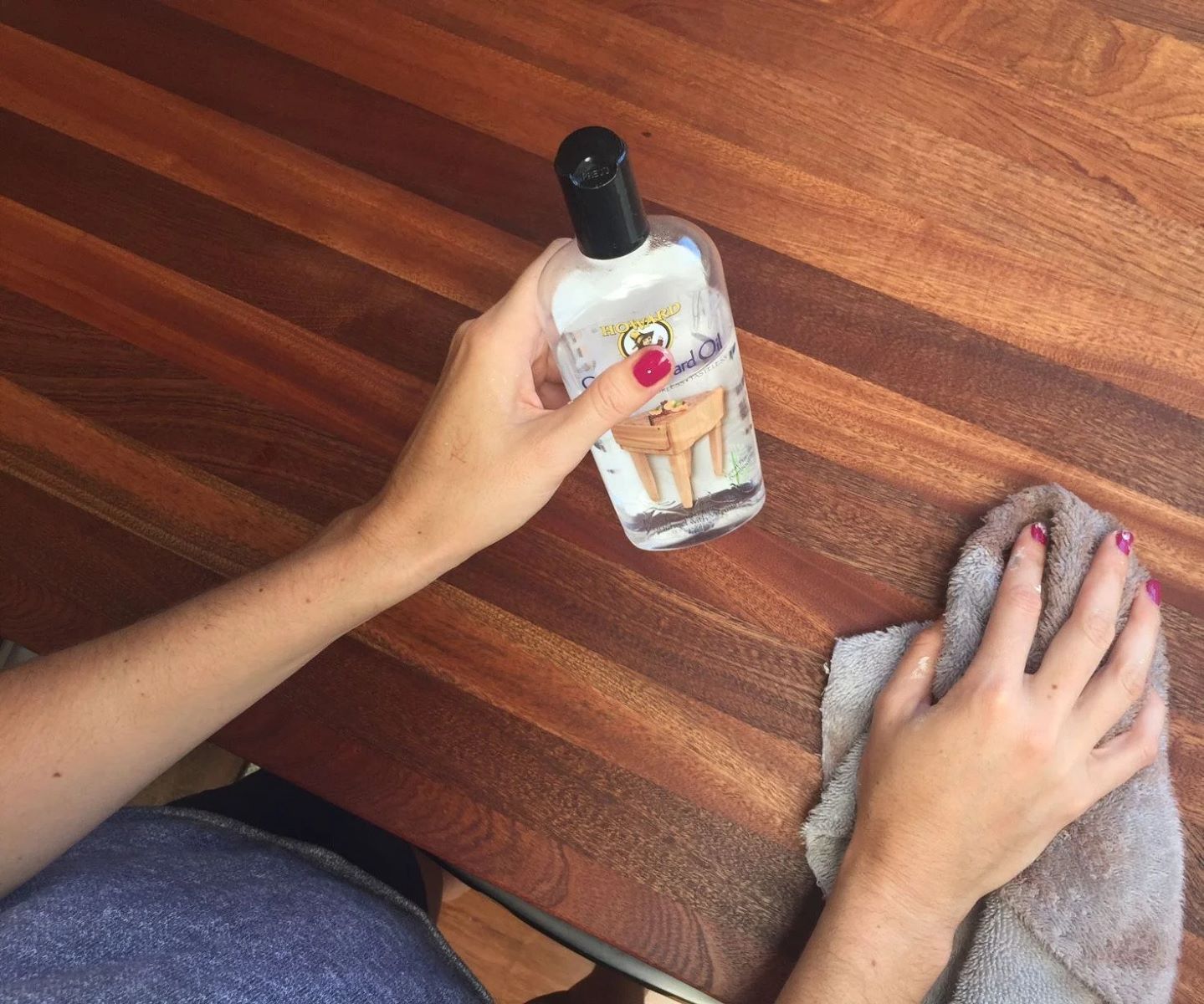

Articles
How Do You Take Care Of Butcher Block Countertops
Modified: December 7, 2023
Learn the best tips and tricks for taking care of your butcher block countertops in our informative articles. Keep your countertops looking beautiful and prolong their lifespan with our expert advice.
(Many of the links in this article redirect to a specific reviewed product. Your purchase of these products through affiliate links helps to generate commission for Storables.com, at no extra cost. Learn more)
Introduction
Butcher block countertops add warmth, character, and functionality to any kitchen. Made from thick slabs of wood, typically maple, oak, or walnut, these countertops provide a natural and rustic aesthetic that can instantly elevate the look of your space.
Not only are butcher block countertops visually appealing, but they also possess several practical benefits. They are durable and can withstand heavy use, making them a popular choice for food preparation areas. The unique surface also offers an excellent cutting surface, reducing wear and tear on your knives.
However, like any investment in your kitchen, butcher block countertops require proper care and maintenance to ensure their longevity. In this article, we will explore the essential steps to take in order to keep your butcher block countertops looking their best for years to come.
Key Takeaways:
- Proper care and maintenance, including regular cleaning, oiling, and sealing, are essential for preserving the natural beauty and durability of butcher block countertops. Preventive measures and prompt attention to stains and spills contribute to their long-lasting quality.
- Using recommended products such as food-grade mineral oil, butcher block conditioner, and beeswax, along with following a regular maintenance routine, can help ensure that butcher block countertops remain beautiful, functional, and well-protected for years to come.
Read more: How Do You Install Butcher Block Countertops
What are butcher block countertops?
Butcher block countertops, as the name suggests, are countertops made from blocks of wood that are glued together to form a solid surface. The most common types of wood used for butcher block countertops are maple, oak, and walnut, although other hardwoods can also be used. These countertops have become increasingly popular in kitchens due to their natural beauty, durability, and versatility.
Butcher block countertops offer a warm and inviting aesthetic that adds a touch of natural elegance to any kitchen. The unique wood grain patterns vary from one piece to another, creating a visually stunning focal point. The thickness of the butcher block can range from 1.5 inches to 6 inches, depending on the desired look and functionality.
One of the main advantages of butcher block countertops is their durability. The dense and hard nature of hardwoods makes them resistant to scratches, stains, and dents. This makes butcher block countertops ideal for food preparation areas, as they can withstand the daily wear and tear of chopping, slicing, and dicing.
Additionally, butcher block countertops are also known for their hygienic properties. Wood naturally contains enzymes that have antibacterial properties, making it a more sanitary surface compared to other materials like plastic or laminate. Regular cleaning and proper maintenance can help keep the surface of your butcher block countertops free of bacteria and germs.
Butcher block countertops are also highly versatile and can be customized to suit your specific needs. They can be cut and shaped to fit any kitchen layout, and you can even have custom features such as built-in cutting boards or integrated sink areas. With proper care and maintenance, butcher block countertops can last a lifetime and continue to enhance the beauty and functionality of your kitchen.
Pros and Cons of Butcher Block Countertops
Butcher block countertops offer a unique and attractive option for kitchen surfaces, but like any material, they come with their own set of advantages and disadvantages. Understanding the pros and cons can help you make an informed decision about whether butcher block countertops are the right choice for your kitchen.
Pros:
- Natural Beauty: Butcher block countertops bring warmth and natural beauty to your kitchen. The unique grain patterns of the wood create a visually appealing and inviting space.
- Durable: Hardwood species used in butcher block countertops, such as maple or oak, are highly durable and can withstand the rigors of daily use. They are resistant to scratches and dents, making them a great option for food preparation areas.
- Flexible and Repairable: If your butcher block countertops become scratched or damaged over time, they can be easily repaired by sanding and refinishing. This allows you to maintain the beauty and functionality of your countertops for years to come.
- Cutting Surface: One of the unique advantages of butcher block countertops is their excellent cutting surface. The natural wood fibers help to preserve the sharpness of your knives and reduce wear and tear on them.
- Hygienic: Contrary to popular belief, wood has natural antibacterial properties. As long as the surface is properly cleaned and maintained, butcher block countertops can be a safe and hygienic option for food preparation.
Cons:
- Requires Regular Maintenance: Butcher block countertops need regular maintenance to keep them in good condition. This includes proper cleaning, oiling, and sealing to prevent drying, staining, and warping.
- Prone to Scratches and Stains: While the wood used in butcher block countertops is durable, it is still susceptible to scratches and stains. Care must be taken to avoid cutting directly on the surface and wiping up spills promptly.
- Sensitivity to Moisture: Wood is responsive to changes in moisture levels, which can cause the butcher block to expand or contract. Excessive moisture exposure can lead to warping or cracking, so it’s important to keep the surface dry.
- Not Heat Resistant: Placing hot pans or pots directly onto the surface of the butcher block can cause damage. It’s recommended to use trivets or heat-resistant mats to protect your countertops from heat-related issues.
- Initial Cost: While the long-term value of butcher block countertops is high, the upfront cost can be significant compared to other materials like laminate or tile. However, the durability and beauty make it worth the investment for many homeowners.
Understanding the pros and cons of butcher block countertops can help you determine if they align with your needs and preferences. With proper care and maintenance, butcher block countertops can provide a beautiful and functional addition to your kitchen for years to come.
Read more: How To Do Butcher Block Countertops
Basic Cleaning and Maintenance
Proper and regular cleaning is essential for maintaining the beauty and longevity of your butcher block countertops. By following these basic cleaning and maintenance steps, you can keep your countertops looking their best:
1. Daily Cleaning:
Wipe down the surface of your butcher block countertops with a mild dish soap and warm water solution. Use a soft cloth or sponge to gently scrub away any food particles or spills. Avoid using harsh abrasives or cleaners that can damage the wood surface.
2. Drying:
After cleaning, make sure to thoroughly dry the surface of the countertop to prevent any moisture from seeping into the wood. Excessive moisture can cause warping or cracking, so it’s essential to keep the surface as dry as possible.
3. Avoiding Standing Water:
Avoid leaving wet or damp items, such as dishes or cloths, on the surface of your butcher block countertops. Standing water can penetrate the wood and lead to damage over time. It’s important to promptly wipe up any spills and ensure the surface is dry.
Read more: How Do You Clean Butcher Block Countertops
4. Cutting Boards or Mats:
While butcher block countertops are a great cutting surface, it’s a good practice to use cutting boards or mats when chopping or slicing to prevent direct contact with the wood. This will help protect the surface from excessive wear and tear and reduce the risk of scratches.
5. Removing Stains:
If you notice any stains on your butcher block countertops, there are a few natural remedies you can try. For light stains, scrubbing the area with a mixture of water and baking soda can often do the trick. For deeper stains, you may need to use a gentle bleach solution or sand the stained area and refinish it.
6. Avoiding Harsh Chemicals:
When cleaning your butcher block countertops, avoid using harsh chemicals or abrasive cleaners. These can strip away the protective sealant, dry out the wood, or cause discoloration. Stick to mild and natural cleaning solutions for the best results.
By following these basic cleaning and maintenance practices, you can keep your butcher block countertops clean, hygienic, and beautiful for years to come. Regular care and attention will ensure that your countertops continue to be a focal point of your kitchen while providing a durable and functional surface for all your culinary needs.
Preventing and Removing Stains
While butcher block countertops are durable, they are still susceptible to staining. However, with proper preventive measures and prompt action, you can minimize the chances of stains and effectively remove them if they do occur. Here are some tips to help you prevent and remove stains from your butcher block countertops:
Preventive Measures:
- Use Cutting Boards: To prevent stains from food or beverages, always use cutting boards when chopping or preparing ingredients. This will create a barrier between the food and the countertop surface, reducing the risk of staining.
- Wipe Up Spills Immediately: Accidents happen, but it’s important to clean up spills promptly to prevent them from seeping into the wood. Use a clean cloth or paper towel to blot and remove any liquid or food spills on the countertops.
- Avoid Harsh Chemicals: Harsh chemicals like bleach or ammonia can cause discoloration on butcher block countertops. Instead, opt for mild and natural cleaning solutions.
- Regular Oiling and Sealing: Oiling and sealing your butcher block countertops periodically helps create a protective barrier against stains and moisture. This step is essential to maintain the longevity and resilience of your countertops.
Removing Stains:
If your butcher block countertops do get stained, don’t panic. Here are some methods you can try to remove stains effectively:
- Baking Soda Paste: For light stains, make a paste of baking soda and water, then gently rub it onto the stain with a soft cloth or sponge. Let it sit for a few minutes, then scrub the area in a circular motion. Rinse with warm water and dry thoroughly.
- Vinegar and Lemon Juice: For tougher stains, mix equal parts white vinegar and lemon juice and apply the solution to the stained area. Let it sit for a few minutes, then gently scrub using a soft cloth or sponge. Rinse with warm water and dry.
- Bleach Solution: For deep or stubborn stains, you can try using a mild bleach solution. Mix one part bleach with five parts water, apply it to the stain, and let it sit for a few minutes. Scrub gently with a soft cloth or sponge, then rinse thoroughly.
- Sanding and Refinishing: If the stain persists, sanding the affected area with fine-grit sandpaper can help remove the stain. After sanding, apply a fresh coat of oil and sealant to the countertop to restore its protective barrier.
When removing stains, it’s important to test any cleaning solution or method on a small, inconspicuous area of your countertop first to ensure it doesn’t cause any damage or discoloration. If you are unsure about how to handle a specific stain or if it is particularly stubborn, it’s best to consult a professional for advice.
With proper preventive measures and prompt attention to stains, you can keep your butcher block countertops looking clean and beautiful for years to come.
Oiling and Sealing Butcher Block Countertops
Oiling and sealing your butcher block countertops is a crucial step in their care and maintenance. It helps to protect the wood from moisture, stains, and daily wear and tear. Regular oiling and sealing will not only enhance the natural beauty of your countertops but also prolong their lifespan. Here are the steps to properly oil and seal your butcher block countertops:
1. Prepare the Surface:
Before applying any oil or sealant, make sure that your butcher block countertops are clean and dry. Remove any food particles, dust, or spills from the surface using a mild dish soap and warm water. Allow the countertops to dry completely before moving on to the next step.
Read more: How To Sand Butcher Block Countertops
2. Choose the Right Oil:
When it comes to oiling butcher block countertops, it’s crucial to use the right type of oil. Food-grade mineral oil or butcher block oil is recommended as they are safe for direct contact with food and do not turn rancid over time. Avoid using vegetable oils, as they can go rancid and leave an unpleasant odor.
3. Apply the Oil:
Start by pouring a small amount of oil onto the surface of the countertop. Use a clean, lint-free cloth or a soft brush to spread the oil evenly across the entire surface, including the edges. Apply a generous amount of oil to ensure proper absorption into the wood. Allow the oil to penetrate the wood for about 15-20 minutes.
4. Wipe off Excess Oil:
Once the oil has had time to penetrate the wood, use a clean cloth or paper towel to wipe off any excess oil from the surface. This step is important to prevent a sticky residue from forming. Ensure that the countertop feels smooth and dry to the touch after wiping off the excess oil.
5. Seal the Countertops:
To provide an extra layer of protection, it’s recommended to seal your butcher block countertops with a food-grade sealant. There are different sealants available, such as beeswax or a specialized butcher block sealer. Follow the manufacturer’s instructions for the specific sealant you choose, applying it evenly across the surface of the countertop. Allow the sealant to dry thoroughly before using the countertops.
Read more: How Durable Is Butcher Block Countertops
6. Maintain Regular Maintenance:
After oiling and sealing your butcher block countertops, it’s important to maintain regular maintenance. This includes regularly cleaning the surface with mild soap and water, and reapplying oil every few months or as needed. Keeping up with routine maintenance will help ensure the longevity and beauty of your countertops.
Remember that the frequency of oiling and sealing may vary depending on factors such as how often the countertops are used and the type of wood. Always follow the manufacturer’s recommendations and consider the specific needs of your butcher block countertops.
By properly oiling and sealing your butcher block countertops, you can protect them from moisture, stains, and daily wear. This maintenance routine will help keep your countertops looking beautiful and extend their lifespan, allowing you to enjoy them for years to come.
Recommended Products for Care and Maintenance
When it comes to caring for and maintaining butcher block countertops, using the right products can make a significant difference in their longevity and appearance. Here are some recommended products that can help you keep your countertops in excellent condition:
1. Food-Grade Mineral Oil:
Food-grade mineral oil is a must-have for oiling butcher block countertops. It helps to condition and moisturize the wood, preventing it from drying out and cracking. Look for a food-grade mineral oil specifically formulated for use on cutting boards and butcher block surfaces. Apply the oil regularly to keep your countertops well-maintained and protected.
2. Butcher Block Conditioner:
A butcher block conditioner is a combination of food-grade mineral oil and natural waxes. This product provides the benefits of both oiling and sealing in one step. It helps to nourish the wood while creating a protective barrier against moisture and stains. Follow the instructions on the product for application frequency and enjoy the convenience of a two-in-one solution.
Read more: How To Treat New Butcher Block Countertops
3. Beeswax:
Beeswax is a natural and safe option for sealing butcher block countertops. It helps to create a water-resistant barrier and enhances the natural beauty of the wood. Apply a thin layer of melted beeswax to the surface of the countertops and allow it to cool and harden. Buff the wax gently to achieve a smooth and lustrous finish.
4. Butcher Block Cleaner:
Using a specialized butcher block cleaner can help you effectively remove food residue, stains, and odors from your countertops. Look for a cleaner that is specifically designed for use on wood surfaces. Avoid harsh chemical cleaners that can damage the wood or strip away the protective sealant.
5. Fine-Grit Sandpaper:
If your butcher block countertops develop deep stains or scratches that cannot be removed with regular cleaning, fine-grit sandpaper can come to the rescue. Sanding the affected area gently can help remove the stain or scratch. After sanding, make sure to reapply oil and sealant to restore the protective layer.
6. Microfiber Cloth or Soft Sponge:
For everyday cleaning and maintenance, use a microfiber cloth or soft sponge. These tools are gentle on the wood surface and effectively remove dirt, spills, and residue without causing damage. Avoid using abrasive brushes or scrubbers that can scratch the surface of your countertops.
Remember to always follow the instructions provided by the manufacturers of the products you choose. Different types of wood may have specific care requirements, so consider the type of wood used for your butcher block countertops when selecting products for care and maintenance.
By using these recommended products and following a regular maintenance routine, you can ensure that your butcher block countertops remain beautiful, functional, and well-protected for years to come.
Tips for Long-Lasting Butcher Block Countertops
Butcher block countertops can provide years of beauty and functionality in your kitchen with proper care and maintenance. To ensure their longevity, here are some tips to help you keep your countertops in excellent condition:
1. Clean up Spills Promptly:
Wipe up any spills or liquids immediately to prevent them from seeping into the wood. Moisture can cause warping or staining of the countertop surface, so it’s important to keep it dry at all times.
2. Use Cutting Boards and Trivets:
To avoid scratches and heat damage, always use cutting boards when chopping or slicing on your butcher block countertops. Additionally, use trivets or heat-resistant mats when placing hot pans or dishes on the surface to prevent direct heat exposure.
3. Regularly Oil and Seal:
Follow a regular maintenance routine of oiling and sealing your butcher block countertops. This will help nourish the wood, maintain its natural beauty, and protect it from stains, moisture, and daily wear and tear. Be sure to use food-grade mineral oil or specific butcher block oils for best results.
4. Avoid Harsh Chemicals:
Avoid using harsh chemicals or abrasive cleaners on your countertops. Stick to mild dish soap, warm water, or specialized butcher block cleaners. Harsh chemicals can strip the protective sealant and damage the wood surface.
5. Regularly Sand and Refinish:
If your countertops develop deep scratches, stains, or dents that cannot be removed with regular maintenance, consider sanding and refinishing the affected area. This will help restore the smoothness and beauty of the wood. Be sure to follow the proper sanding and refinishing techniques to maintain the integrity of the countertops.
6. Use Wood Safe Products:
When selecting cleaning products or tools for your butcher block countertops, make sure they are safe for use on wood surfaces. Avoid using harsh abrasives, bleach, or ammonia-based products that can damage or discolor the wood.
7. Avoid Excessive Moisture:
Avoid exposing your countertops to excessive moisture or humidity. Excessive water contact can cause the wood to warp or swell. Keep the surface dry and use fans or ventilation systems in areas where moisture accumulation is common.
8. Regularly Inspect and Maintain:
Regularly inspect your countertops for any signs of damage or wear. Check for loose joints or cracks and address them promptly to prevent further damage. Maintain a regular cleaning and maintenance routine to keep your countertops in optimal condition.
By following these tips, you can enjoy the beauty and functionality of your butcher block countertops for many years to come. Proper care and maintenance will help preserve their natural beauty and ensure their durability in your kitchen space.
Conclusion
Butcher block countertops offer a timeless and charming addition to any kitchen. With their natural beauty and versatility, they can elevate the overall look and functionality of your space. However, to ensure the longevity and beauty of your countertops, it is essential to follow proper care and maintenance practices.
Regular cleaning is crucial to keep your countertops free from dirt, spills, and bacteria. Using mild dish soap and warm water, along with a gentle cloth or sponge, will help maintain a clean surface. Promptly drying the countertops after cleaning is important to prevent moisture-related issues.
To prevent stains, it is advisable to use cutting boards when working on your countertops and to wipe up spills immediately. For heavier stains, natural remedies such as baking soda paste or lemon juice can be effective. Sanding and refinishing may be necessary for deeper or stubborn stains that cannot be removed with surface cleaning methods.
By following these care and maintenance practices, you can enjoy the timeless elegance and functionality of your butcher block countertops for many years to come. Their natural beauty, durability, and ability to create a warm and inviting atmosphere in your kitchen make them a wise investment in both style and functionality. Remember, every kitchen is unique, and the specific care requirements for your butcher block countertops may vary. Always refer to the manufacturer’s recommendations and instructions for your specific countertops to ensure optimal care. Take pride in your butcher block countertops, and treat them well, as they will undoubtedly become a centerpiece of your kitchen for years of enjoyment to come.Frequently Asked Questions about How Do You Take Care Of Butcher Block Countertops
Was this page helpful?
At Storables.com, we guarantee accurate and reliable information. Our content, validated by Expert Board Contributors, is crafted following stringent Editorial Policies. We're committed to providing you with well-researched, expert-backed insights for all your informational needs.
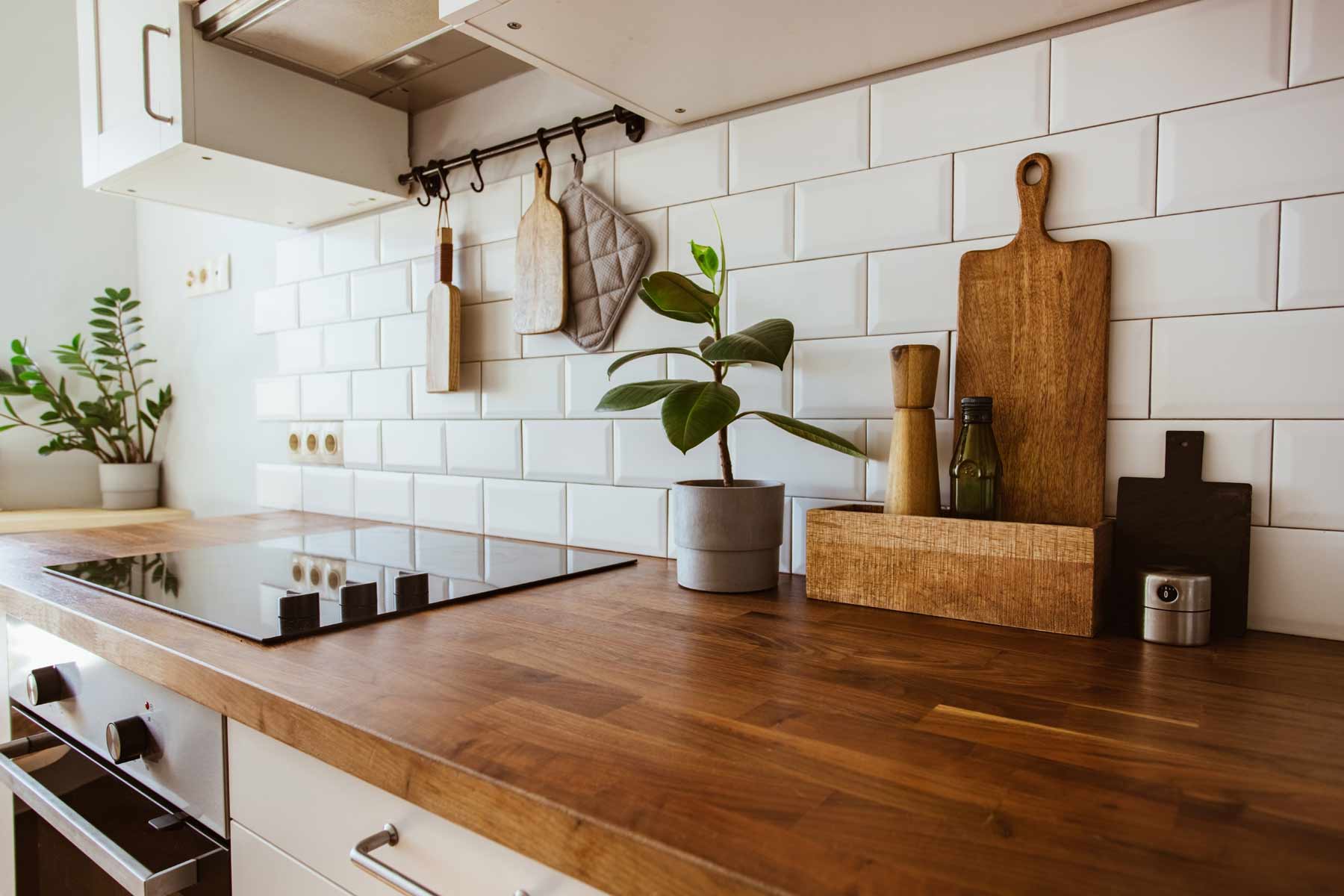
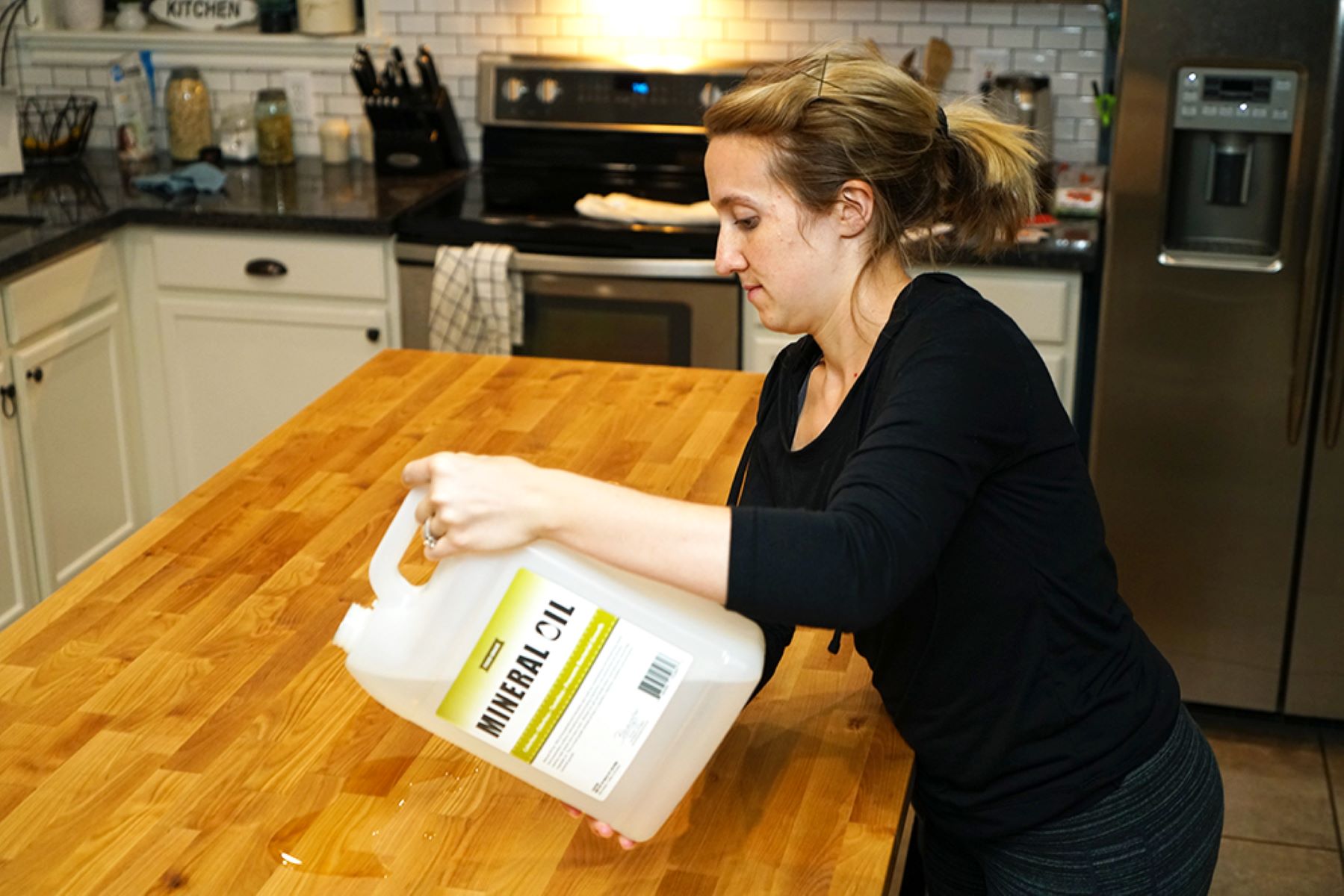
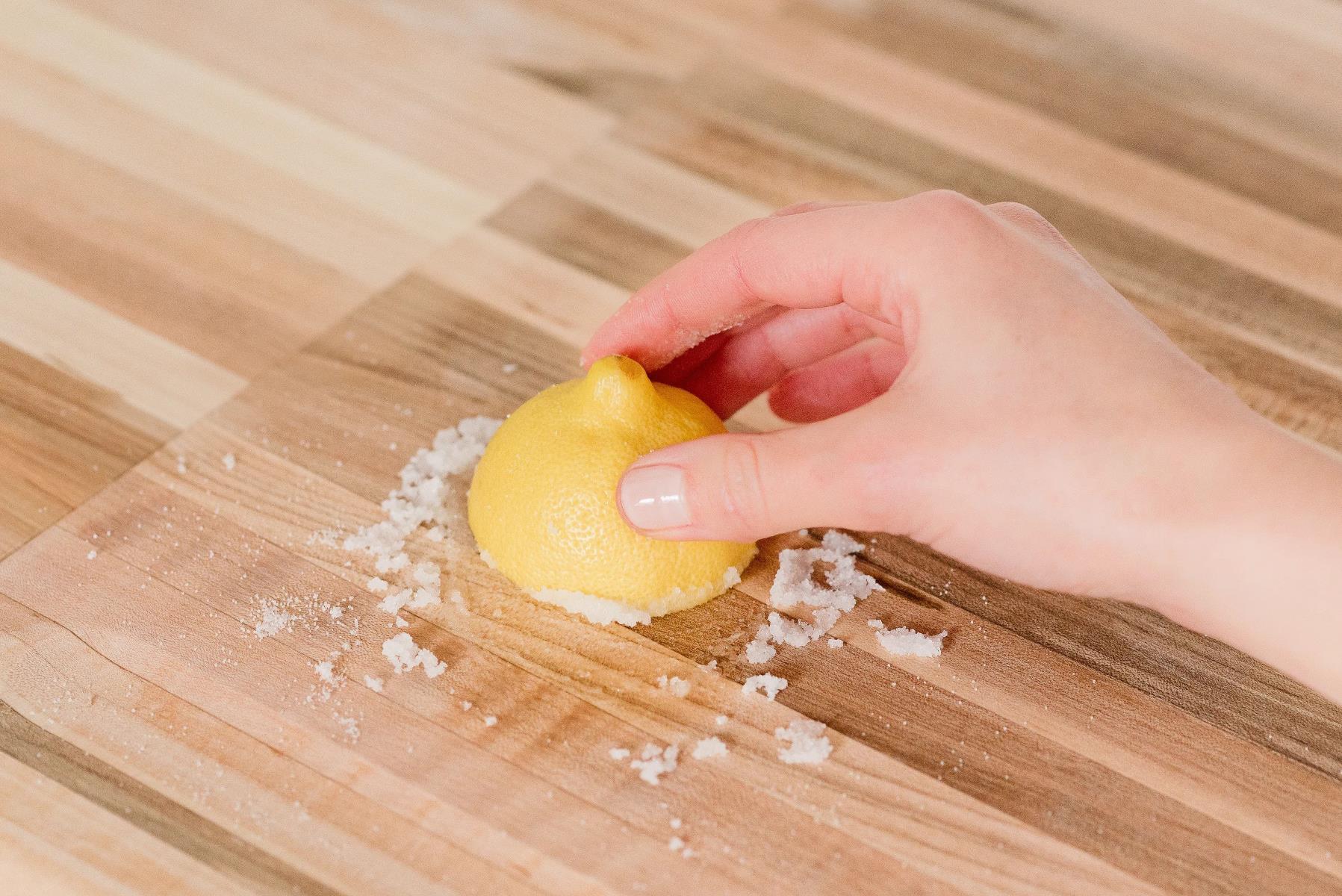
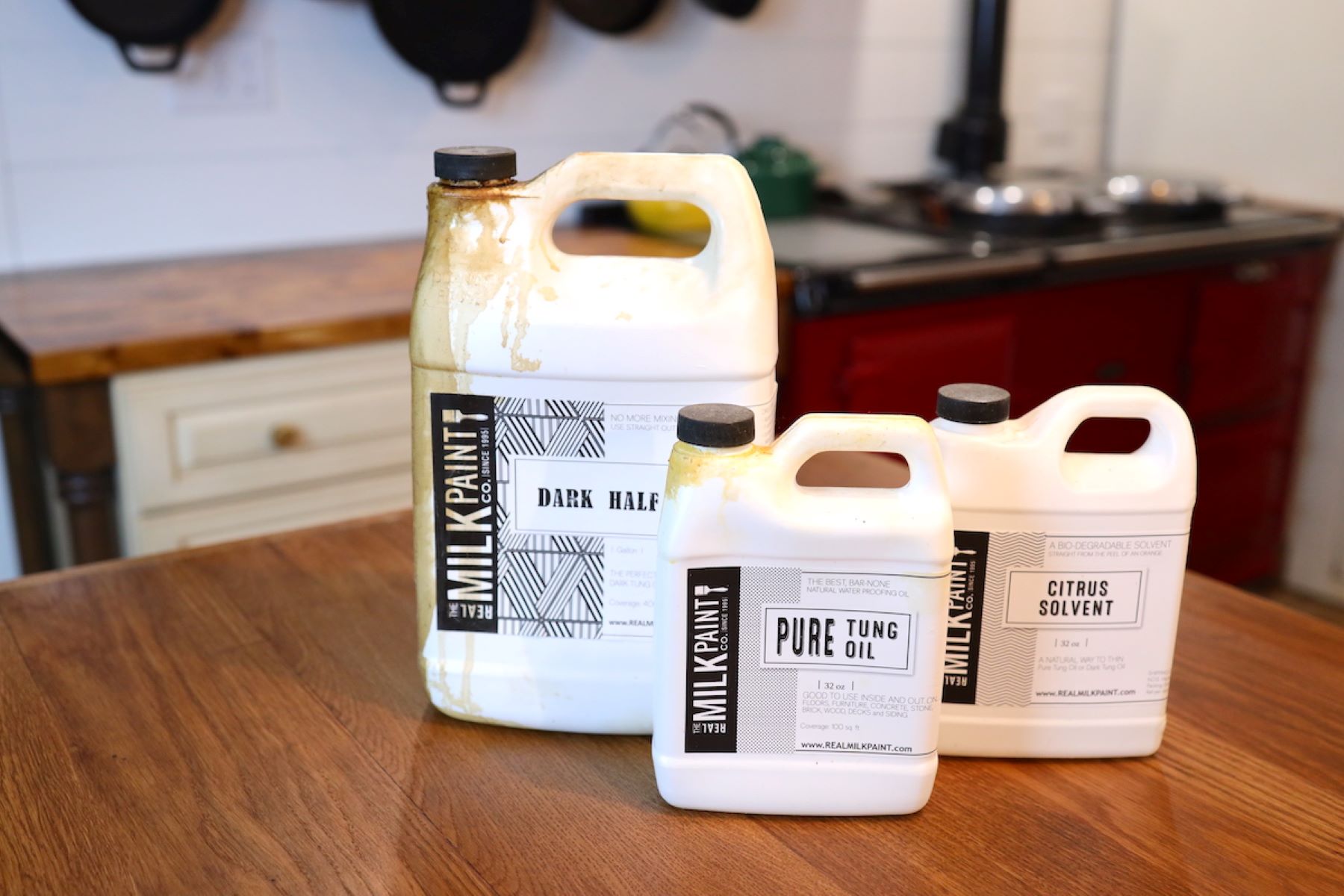
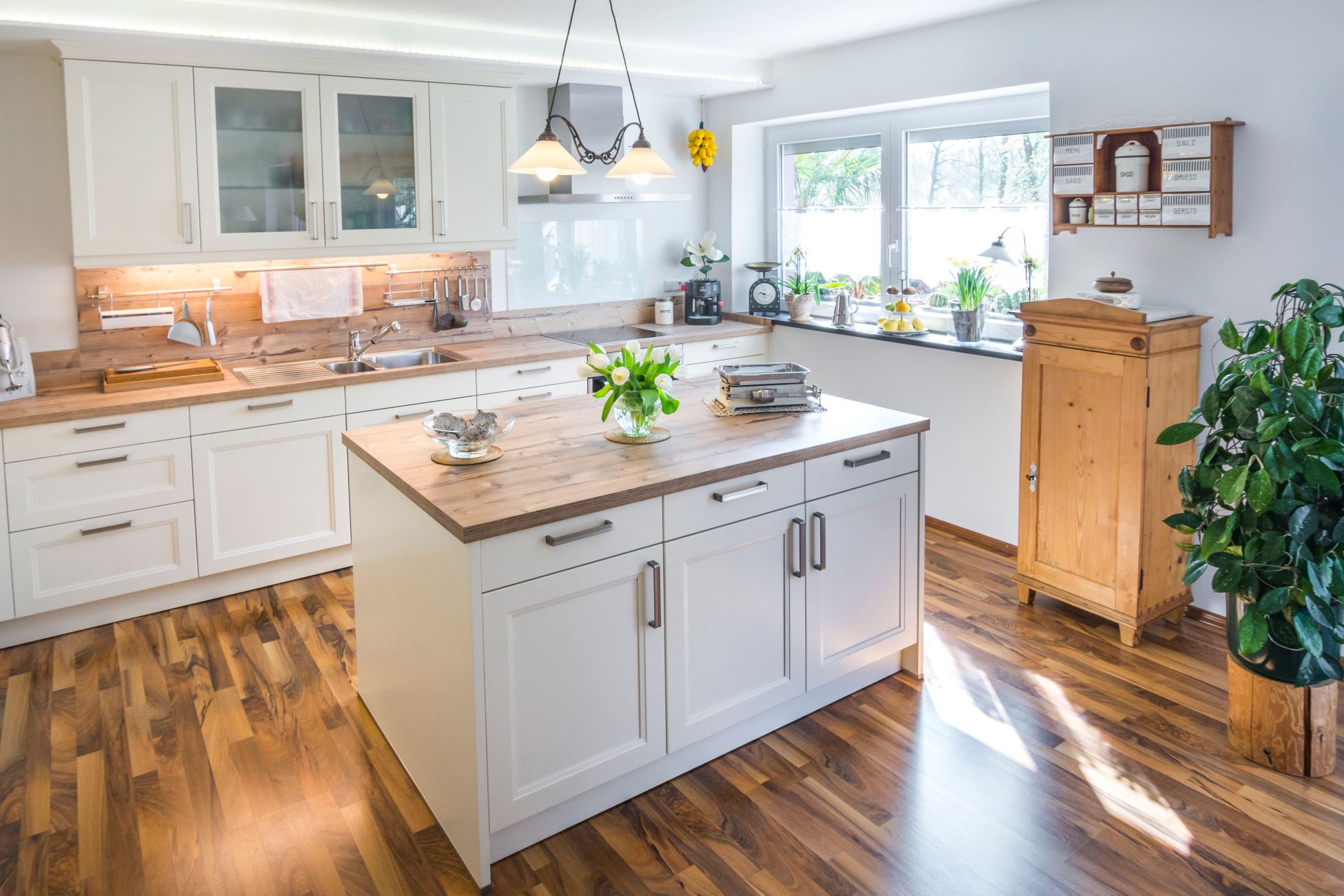
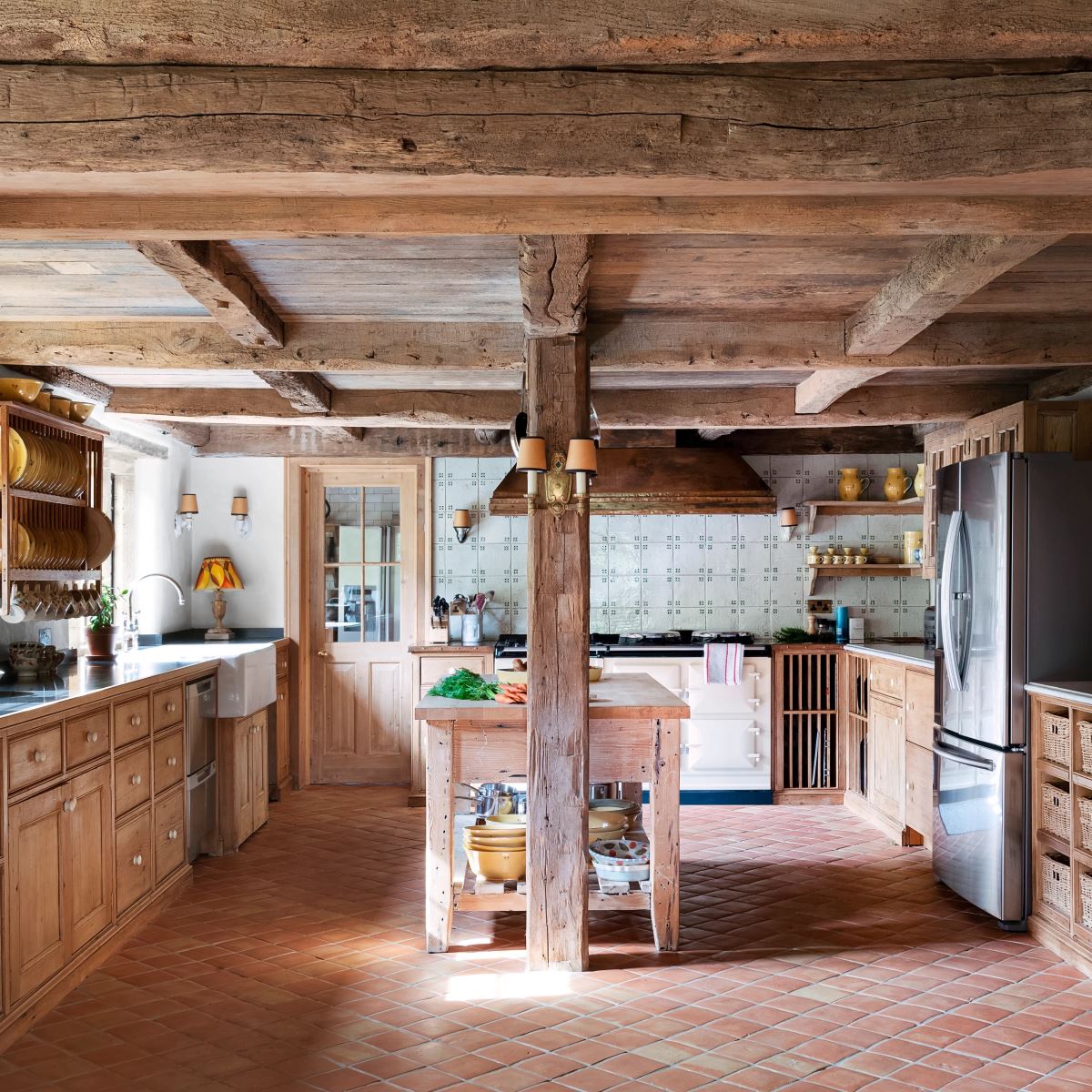

0 thoughts on “How Do You Take Care Of Butcher Block Countertops”